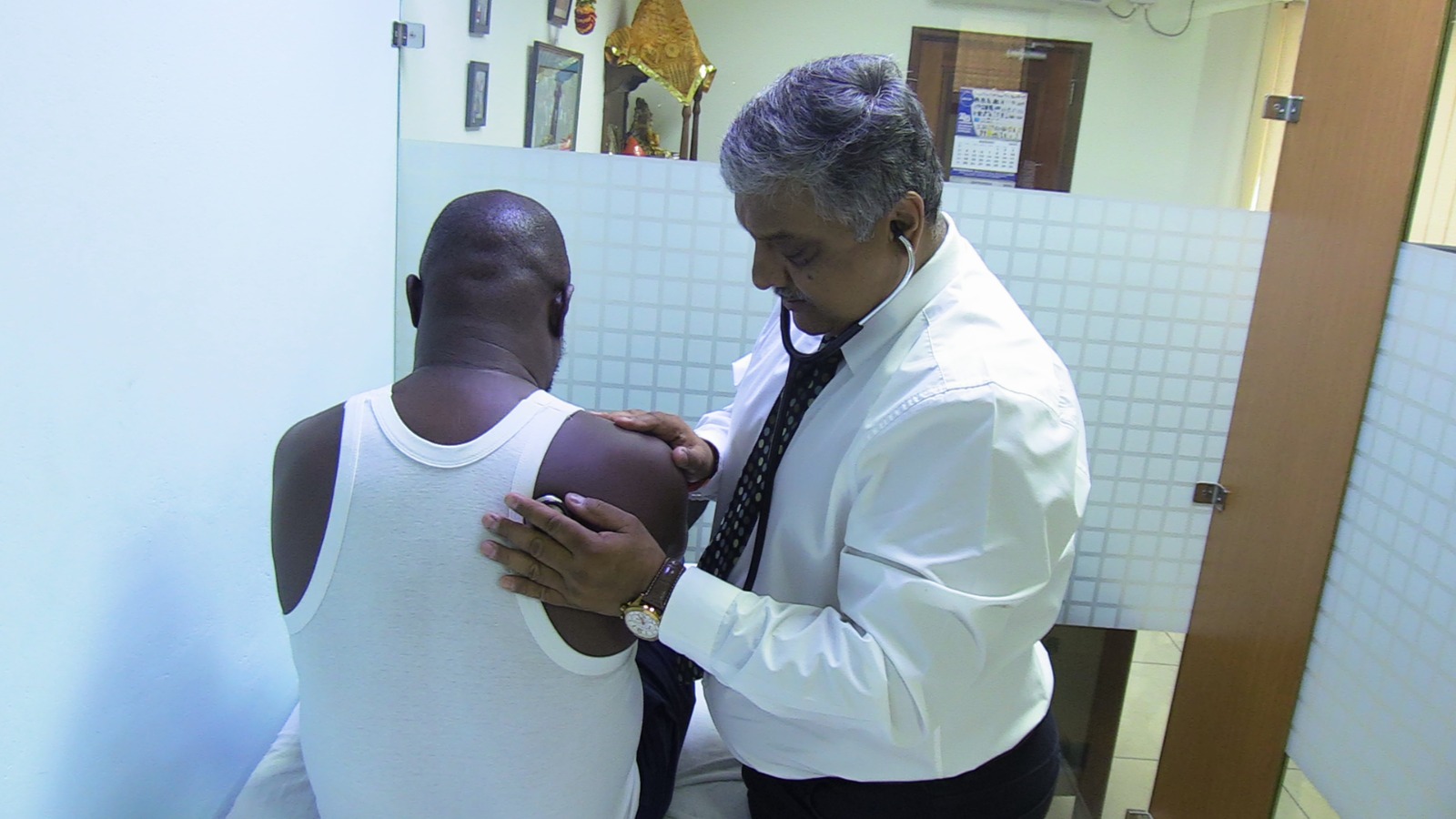 Nicholas Kisara, a heart attack survivor and author undergoing medical examination performed by Dr Vinesh Vaghela at the Coast Cardiac Center based at Pandya Memorial Hospital in Mombasa County on Monday, September, 22, 2025. Dr Vaghala has urged Kenyans to take periodic cardiology tests and observe a healthy lifestyle as one way of preventing heart diseases. Photo by Ben Okweingoti
Nicholas Kisara, a heart attack survivor and author undergoing medical examination performed by Dr Vinesh Vaghela at the Coast Cardiac Center based at Pandya Memorial Hospital in Mombasa County on Monday, September, 22, 2025. Dr Vaghala has urged Kenyans to take periodic cardiology tests and observe a healthy lifestyle as one way of preventing heart diseases. Photo by Ben Okweingoti
By Ben Okweingoti
Kenyans have been urged to undergo periodic cardiology tests and adopt healthier lifestyles as a way of preventing the rising cases of heart disease.
Specialists warn that an increasing number of young people are falling victim to heart attacks, a trend linked to changing lifestyles.
Dr. Vinesh Vaghela, a consulting cardiologist at the Coast General Teaching and Referral Hospital (CGTRH) and part-time practitioner at Pandya Memorial Hospital, revealed that patients as young as 30 years old are now being admitted to cardiac units across the country. He described the situation as a “time bomb” that requires urgent intervention.
“Previously, it was rare to see heart attacks in the indigenous Kenyan population. In my more than 20 years of training, such cases were extremely few. Today, our hospitals are overwhelmed by the condition,” Dr. Vaghela said.
He cited stress, poor lifestyle choices, hypertension, diabetes, high blood pressure, and hereditary factors as the leading causes. He emphasized the importance of routine medical checkups to detect and manage risks early.
Kenya is also facing a shortage of specialists. Mombasa County, with over three million residents, has only five cardiologists. “We cannot cope with the growing disease burden. More cardiologists and resources are urgently needed,” he added.
One survivor, Mr. Nicholas Kisara, shared his experience of suffering a massive heart attack at just 32 years old. Doctors at Pandya Memorial Hospital gave him less than 30 minutes to live, but swift diagnosis and treatment saved his life.
“It started with sharp chest pains while I was resting in bed. My wife rushed me to hospital, and luckily, I was diagnosed on time,” Kisara recounted. An Electrocardiogram (ECG) revealed a blocked artery. He underwent an emergency procedure to insert a stent that restored blood flow to his heart.
Now six years after his ordeal, Kisara has authored a book titled Heart of Resilience and Transformation to raise awareness about heart disease. He describes the condition as not only life-threatening but also financially draining, with treatment running into millions of shillings.
“Through my book, I sell hope and urge Kenyans to embrace prevention through regular checkups. Treatment is extremely expensive, but early detection can save lives,” he said.
Dr. Vaghela praised Kisara for turning his experience into an advocacy mission. “He has become a champion for survivors and a source of inspiration. His story will help many Kenyans understand how to prevent and manage heart disease,” the cardiologist noted.